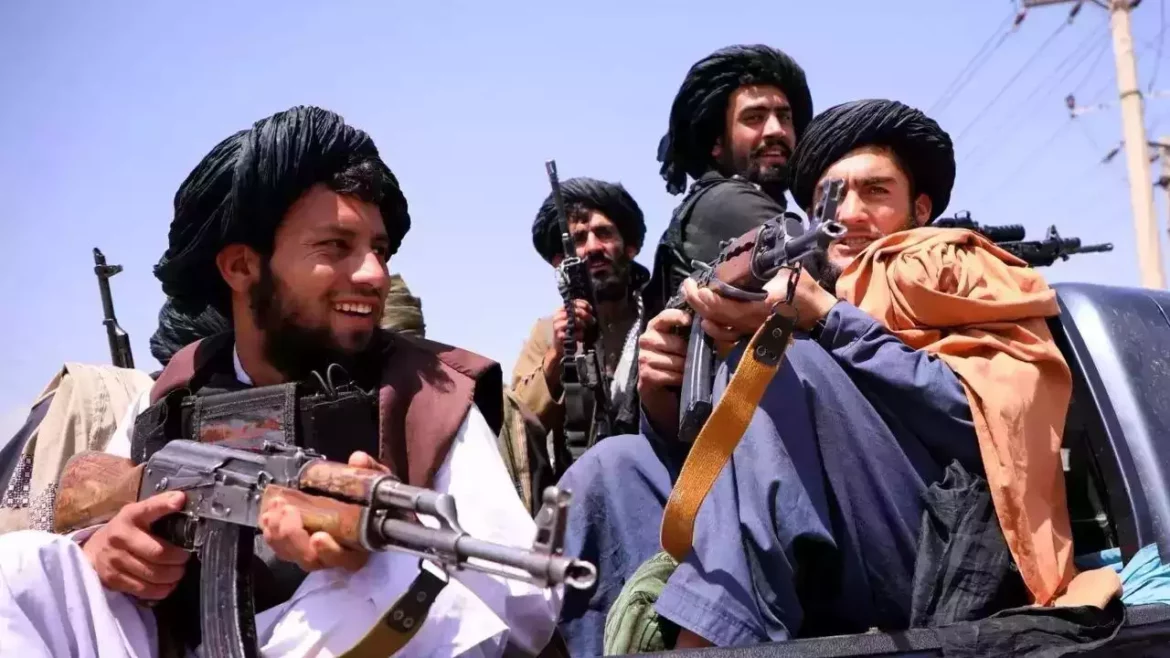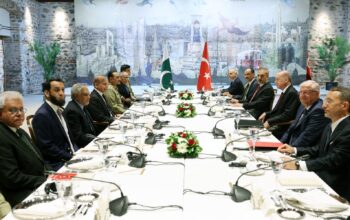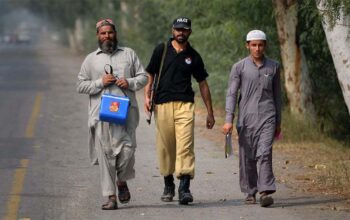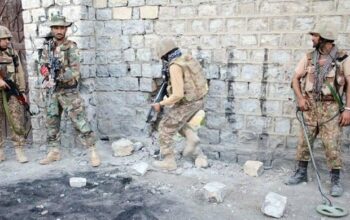By Staff Reporter
ISLAMABAD: The Taliban’s takeover of Afghanistan has emboldened a Pakistani militant group that seeks to overthrow the government in Islamabad and poses a growing threat to regional stability, UN experts and member states warned.
The Tehrik-e-Taliban Pakistan (TTP), also known as the Pakistani Taliban, has intensified its attacks on Pakistani security forces and civilians since it reunited with several splinter groups last year, according to a recent report by the UN Security Council’s sanctions monitoring team.
The report, seen by IP, said the TTP “derives advantage from its presence in Afghanistan for its operations across the border into Pakistan” and is “focused on high-value targets in border areas and soft targets in urban areas”.
The report warned that the TTP is gaining momentum in its operations against Pakistan, and could pose a regional threat if it continues to have a safe haven in Afghanistan.
The TTP has “aspired to re-establish control of territory in Pakistan after being emboldened by the Taliban takeover in Afghanistan”, it added.
The group, which is designated as a terrorist entity by the UN, the US and Pakistan, has also benefited from the availability of weapons and military equipment left behind by the US-led coalition that withdrew from Afghanistan last year.
“Regional Member States reported the use of NATO calibre weapons against government forces of neighbouring states, as well as the transfer of such weapons to listed entities, with an emphasis on TTP.”
Some UN member states expressed concern that the TTP could become a regional threat if it continues to have a safe operating base in Afghanistan, where it has established training camps in Kunar and Nuristan provinces.
“Some TTP elements were relocated away from the border area in June, as part of the Taliban’s efforts to reign in the group under pressure from the Pakistani government.”
The UN report follows a statement by the Pakistan military earlier this month expressing serious concern that militants, including TTP, have found safe havens in neighboring Afghanistan.
The army said it has “serious concerns on the safe havens and liberty of action available to TTP in Afghanistan.” “Such attacks are intolerable and would elicit effective response from the security forces of Pakistan.” Kabul has denied past accusations that it allows militant groups to launch attacks on Pakistan from its territory.
The TTP, formed in 2007 as an umbrella organization of various hardline Sunni Islamist groups operating individually in Pakistan, aims to overthrow the Pakistani government and install their own brand of strict Islamic law in the predominantly Muslim country of 220 million people.
They have stepped up attacks since revoking a ceasefire agreement with the government in late 2022, including the bombing of a mosque in the northwestern city of Peshawar that killed more than 100 people earlier this year. The TTP is responsible for some of the bloodiest attacks in Pakistan, including on churches, schools, and the shooting of Malala Yousafzai, who survived the 2012 attack after she was targeted for her campaign against the Taliban’s efforts to deny women education.
UN report said the member countries also warned that the TTP could provide an umbrella for other foreign terrorist groups operating in Afghanistan, such as Al-Qaida in the Indian Subcontinent (AQIS), the East Turkestan Islamic Movement (ETIM) and Jamaat Ansarullah, which are mainly composed of Uzbeks, Uyghurs and Tajiks respectively.
One member state noted the possibility of a merger between the TTP and al-Qaeda’s South Asia branch (AQIS), which is reportedly providing guidance to the TTP for conducting increased attacks within Pakistan. “The training camps run by the ETIM in Kunar province were being used for TTP fighters.”
The report said that Afghanistan remained a place of global significance for terrorism, with approximately 20 terrorist groups operating in the country.
The relationship between the Taliban and Al-Qaida remained “close and symbiotic”, despite the Taliban’s pledge to prevent Afghan soil from being used for terrorist purposes as part of a deal with the US.
“Under the patronage of high-ranking officials of the de-facto Taliban authorities, Al-Qaida members infiltrate law enforcement agencies and public administration bodies, ensuring the security of Al-Qaida cells dispersed throughout the country,” the report said.
The Al-Qaida is in a reorganization phase, establishing new training centres and covertly rebuilding its external operations capability.
Copyright © 2021 Independent Pakistan | All rights reserved




